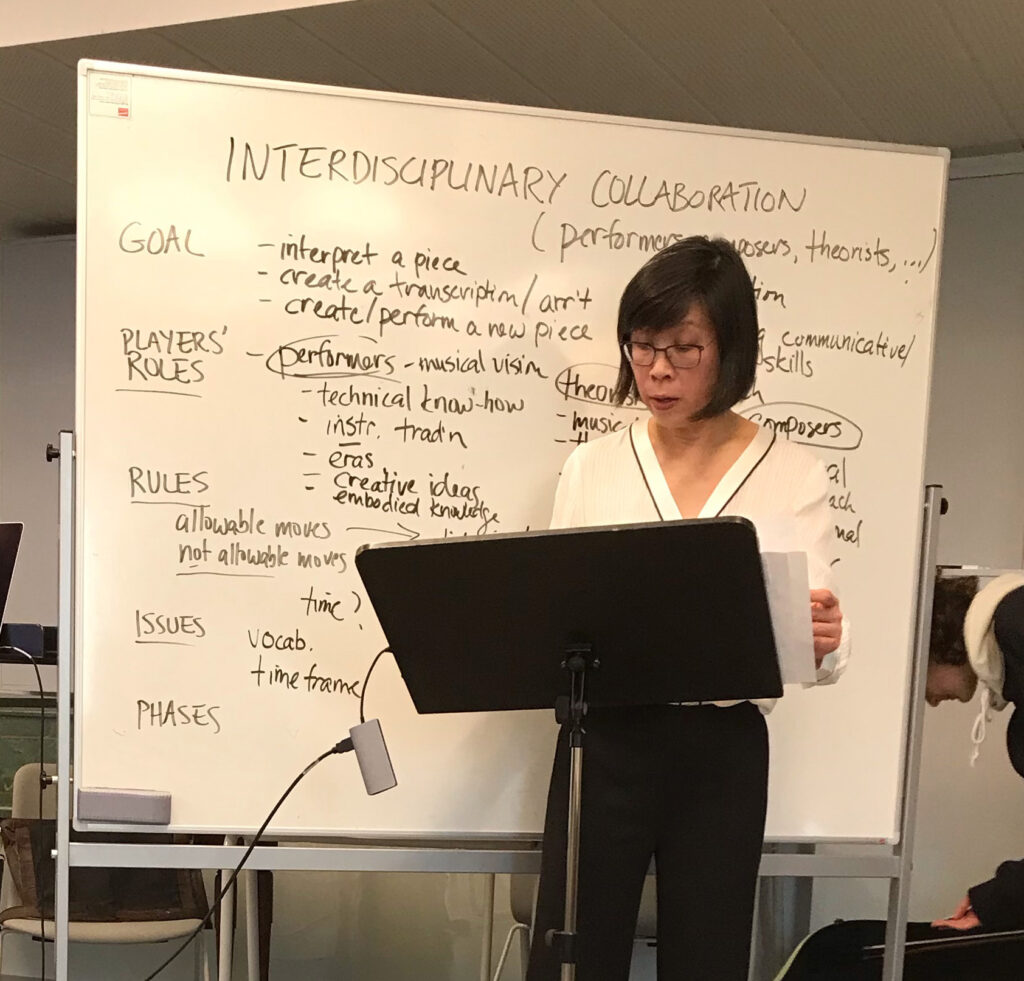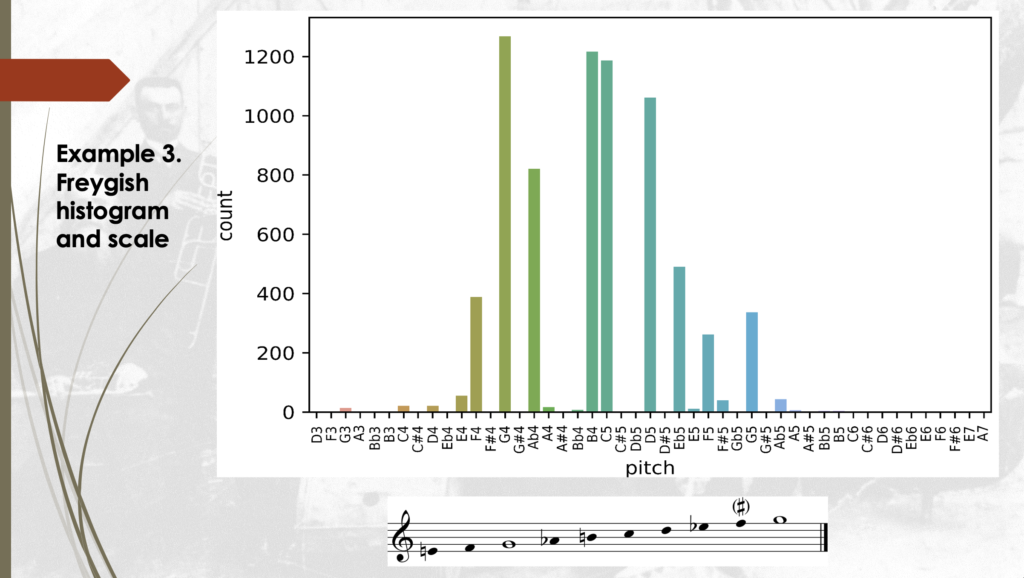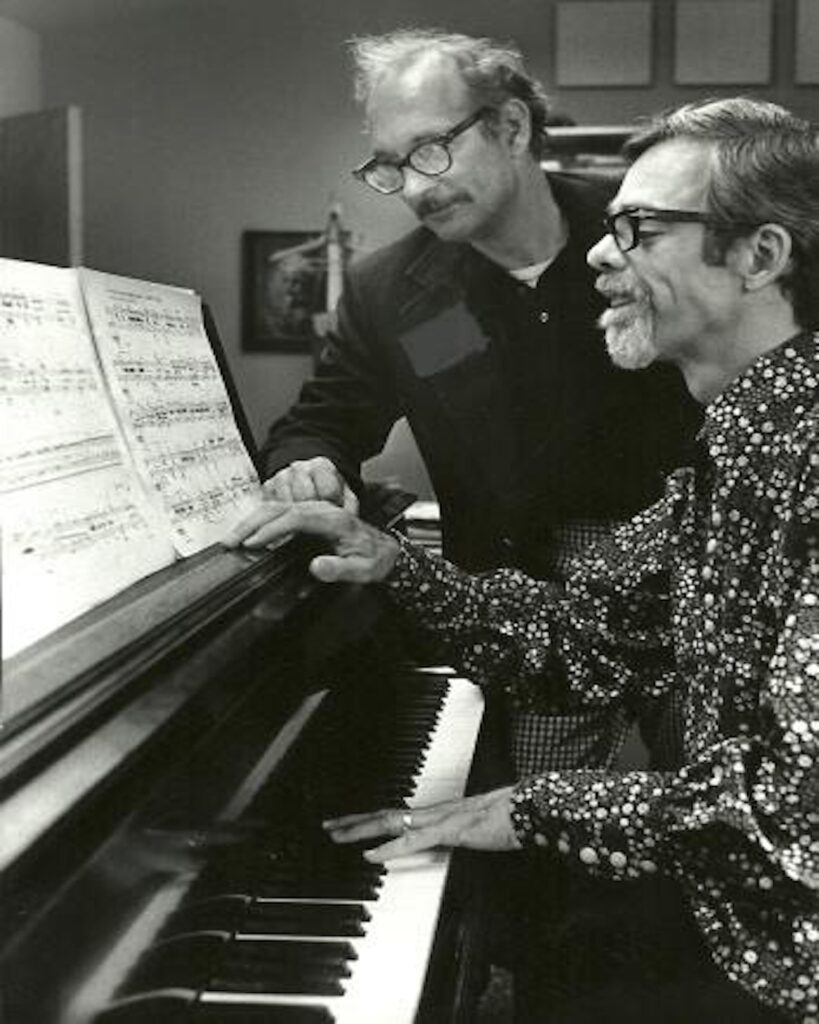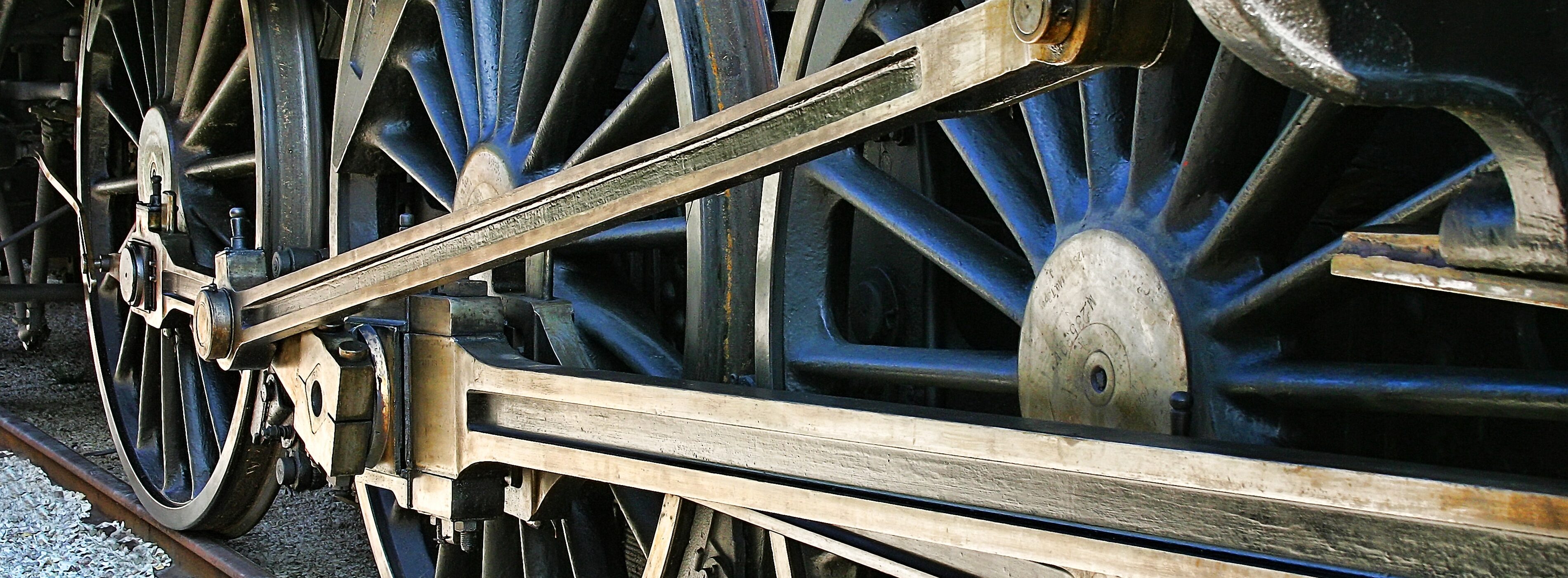Entrainment occurs when some aspect of biological activity synchronizes with regularly recurring events. Here are fireflies in Thailand synchronizing to computer-controlled LEDs.
Here are metronomes on a floating system synchronizing to one another.
Musical meter can be considered as a specialized form of entrainment. We attune our sensorimotor systems to the periodic beat and measure, and in this way coordinate with, produce, and maintain musical meter. (This definition of meter comes from Justin London’s book Hearing in Time, 2nd ed., 2012.)
Grace Leslie, who has just joined CU-Boulder as Assistant Professor of Music in the ATLAS Institute, and Director of the ATLAS Brain-Music Lab, will give a presentation expanding on principles of entrainment: “Brain-Body Music Interfaces for Creativity, Education, and Well-Being,” Monday October 24, 4:45–6:00 pm, Imig Music Building, S102 (chamber hall). See below for a detailed description.
– Daphne Leong
INTRODUCING OUR NEW MM STUDENTS
Ethen Marrs has loved music synchronized for visual media for as long as he can remember. After graduating Cum Laude from Colorado State University in 2014 in Music Composition with an ambition to study film scores, Marrs has committed himself to studying scores for the screen that might otherwise be lost to time.

Julia Sills (M.M. Music Theory, anticipated 2024) is a Teaching Assistant in the music theory department. She graduated with Bachelors’ degrees in Music Theory and Flute Performance from Florida State University in 2022. In her undergraduate thesis, “An Introductory Study of LoFi Music,” Julia worked to define and provide methods of analyzing the LoFi genre. LoFi is an electronic genre of music with influences from hip-hop and jazz, and is distinguished by purposeful degradations of sound. While pursuing her Master’s in music theory, Julia plans to continue her research in popular music with special focus on harmony and rhythm.
Julia is still an active flutist, and enjoys performing music by living composers. Most recently, she performed as principal flute in the Orlando Contemporary Chamber Orchestra for their program “To There From Here.”
FACULTY NEWS
In July, Mark Arnett’s choral composition “Aeolian Harp” was performed at the Bratislava International Youth Music Festival in Latvia by the Eastern Tennessee State University Choir; the performance earned the Grand Prix award. This fall Mark was selected for a Faculty Fellowship at the CU Center for Teaching and Learning. In this program, a small cohort of faculty members meet regularly to explore the latest research and techniques in teaching. Mark is currently working on a book related to teaching and learning as well as composing a series of piano pieces, both of which should be completed in 2023.

In September, Daphne Leong gave a weeklong series of workshops at the Sibelius Academy in Helsinki, Finland. Highlights included 1) a hands-on workshop on collaborating across music disciplines: composition, theory, and performance students worked together to design their own approaches to Webern’s Op. 11 No. 3, including one in which the cello and piano piece was beautifully arranged and performed by flute (last note whistled) and piano harmonics; and 2) exploring a rhythmic problem in Sibelius’s Violin Concerto with students and faculty at the academy that bears the composer’s name. In November Daphne will present “Engaging Post-Tonal Theory” on a panel Reframing Post-Tonal Pedagogy for the 21st Century, at SMT/SEM/AMS 2022 in New Orleans. She will spend the spring semester at McGill University, as the Schulich Distinguished Dean’s Chair in Music.
As a member of the conference program committee, Philip Chang helped review over a hundred proposals for Pedagogy into Practice, the biannual national conference devoted to music theory pedagogy. He attended the conference June, 2022 at Michigan State University. While there, Philip also served on the student presentation awards committee.
Yonatan Malin is an organizer and presenter for a roundtable on The Concept of Mode in Jewish Music Studies at the joint meeting of the Society for Music Theory, the Society for Ethnomusicology, and the American Musicological Society in New Orleans (November 10-13). The presentation involves computational analysis of klezmer (Jewish instrumental music from Eastern Europe), conducted together with Daniel Shanahan from Northwestern University. Yonatan also has an article on Schubert’s song cycle Winterreise forthcoming in a volume celebrating Jürgen Thym, one of the leading scholars of the German art song. He is currently teaching first-year theory and a graduate seminar on Schubert.

Keith Waters received a Pathways to Jazz grant to offset costs for an upcoming studio duo recording with jazz guitarist Scott Sawyer: the studio at Overdub Lane features the Shigeru Kawai SK-7′ 6″ Grand Piano, one of the premier pianos in the world. In summer 2022 he performed with singer Janis Siegel (of Manhattan Transfer) at the Niwot Jazz festival, and with singer Tina Phillips at the Keystone Jazz Festival. His forthcoming book on jazz improvisation co-authored with Brian Levy is slated to be published by Oxford University Press.

This summer, Steve Bruns was at George Crumb’s home in Media, PA, preparing the composer’s archival materials for transfer to the Library of Congress. He organized pianist Margaret Leng Tan’s week-long residency in late September at CU. Bruns was curator for The Crumb Legacy, held at Colorado College in Colorado Springs on Oct. 12 and 13. An exhibition of scores, photographs, and manuscript facsimiles were displayed outside Packard Performance Hall, where two concerts featured Crumb’s music, as well as music by his son David and eight of George Crumb’s former students. Before each concert, Bruns moderated a discussion among the guest composers. On November 19, Bruns will lecture at the Library of Congress in connection with a Crumb memorial concert.
COLLOQUIUM
“Brain-Body Music Interfaces for Creativity, Education, and Well-Being”
Grace Leslie
Monday October 24, 4:45–6:00 pm, Imig Music Building, S102 (chamber hall)
Refreshments to follow
Music is an important and universal means of communication. The feelings of connection and well-being that music creates are supported by a process in the brain and body called entrainment, in which our natural rhythms (speaking, walking, heartbeats, breathing, and even brain waves) synchronize with the rhythms we hear. The research activities I supervise at the Brain Music Lab at Georgia Tech expand on this powerful process by building software and hardware that translates brain and body rhythms into music and sound. I will review several music technologies that invite beneficial brain and body rhythms within and between listeners, and I will introduce the musical performance and composition practice I’ve developed in concert with these technologies. For researchers, doctors, and caretakers, this work has the potential to expand our scientific understanding of music’s beneficial effects on the brain and body, and may lead to new music-based interventions for adults, children, and infants.
Grace Leslie is a flutist, electronic musician, and scientist. She develops brain-music interfaces and other physiological sensor systems that reveal aspects of her internal cognitive and affective state, those left unexpressed by sound or gesture, to an audience. Dr. Leslie is an Assistant Professor of Music with the ATLAS Institute at CU Boulder. Prior to joining CU, Dr. Leslie was an assistant professor in the School of Music at Georgia Tech, where she founded the Brain Music Lab at the Center for Music Technology. Her research uses scientific analysis of EEG, ECoG, and physiological data to understand affective responses to music engagement. Additionally, she uses these experimental methods to engineer new musical interventions for health and well-being, including the development of musical brain-computer interfaces. Dr. Leslie was recently a fellow at the Neukom Institute for Interdisciplinary Computation at Dartmouth University, and a postdoctoral fellow in Rosalind Picard’s Affective Computing Group at the MIT Media Lab. She completed her PhD in Music and Cognitive Science at the University of California, San Diego, performing research with Scott Makeig at the Swartz Center for Computational Neuroscience.
Header image: Photo by Gusztáv Galló
